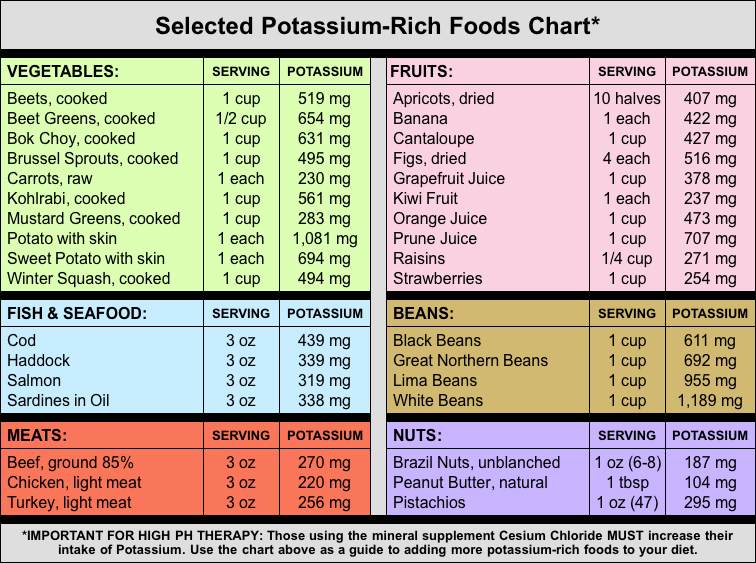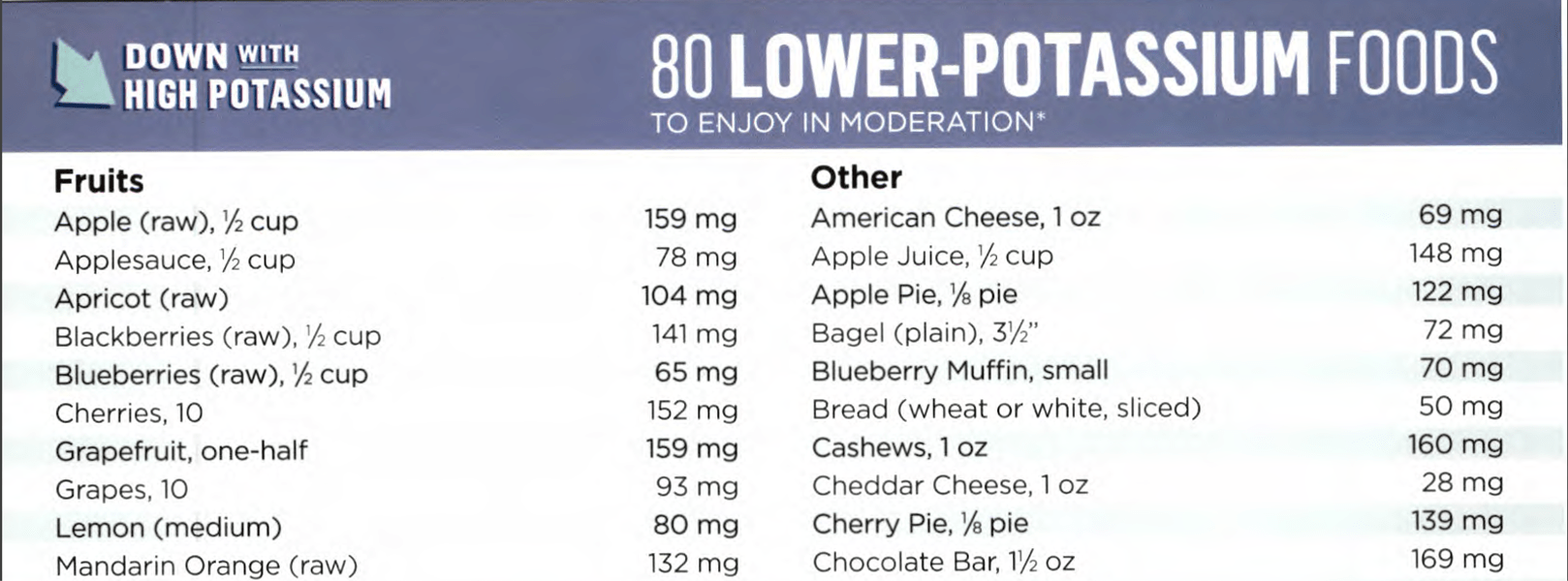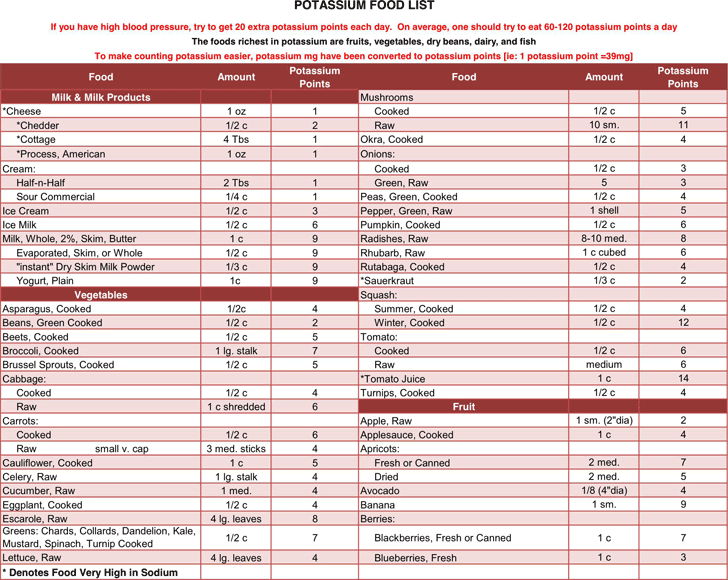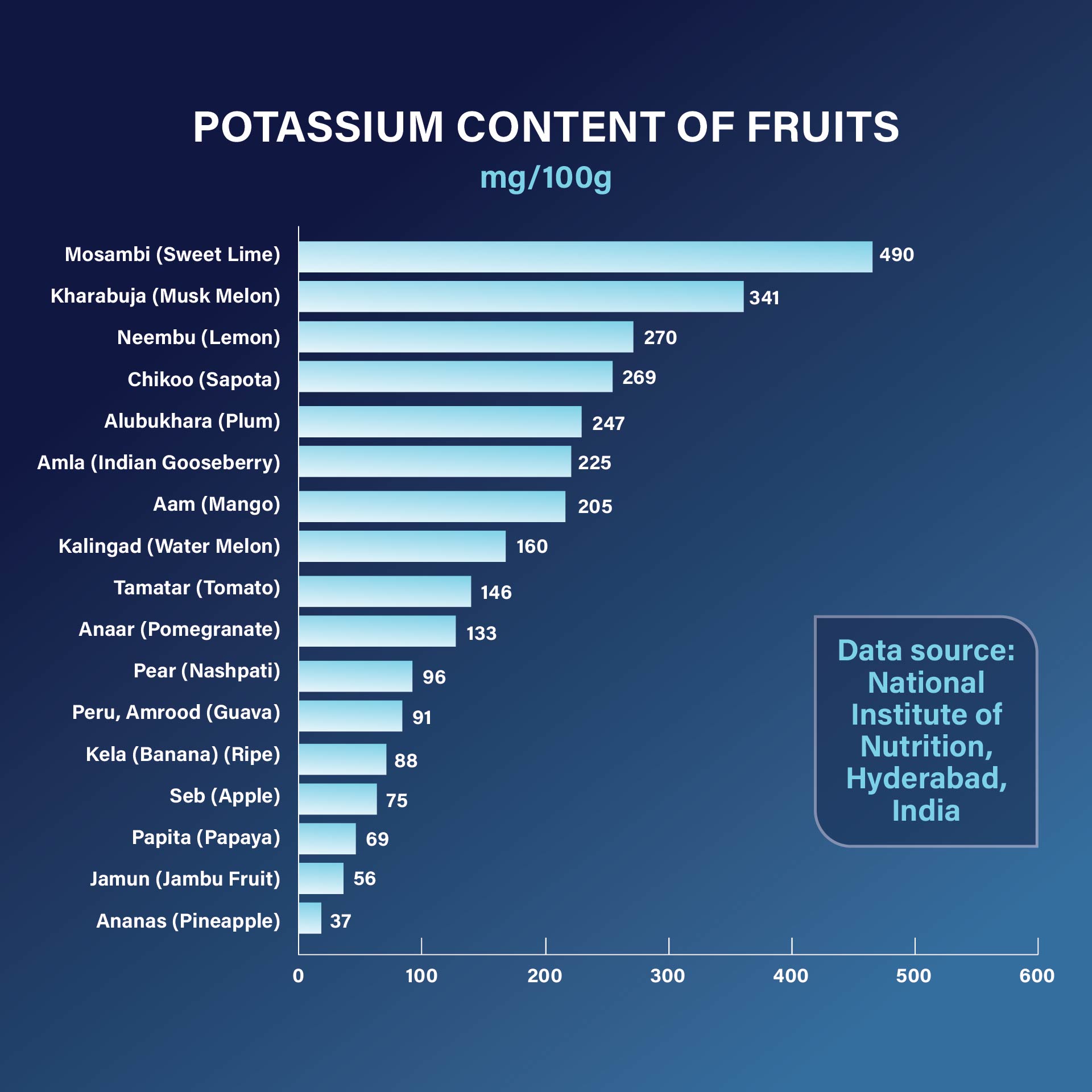When it comes to maintaining a healthy diet, it’s important to be aware of the potassium content in the foods we consume. Potassium is an essential mineral that plays a crucial role in various bodily functions, such as muscle contractions, nerve impulses, and fluid balance. However, for individuals with certain health conditions, such as kidney problems, it may be necessary to follow a low potassium diet plan.
Diet Plan For Low Potassium
 A diet plan for low potassium can involve making smart food choices to keep your potassium intake in check. It is essential to avoid foods that are high in potassium and focus on consuming those with lower potassium levels. The goal is to strike a balance and maintain a healthy potassium range to support kidney function and overall well-being.
A diet plan for low potassium can involve making smart food choices to keep your potassium intake in check. It is essential to avoid foods that are high in potassium and focus on consuming those with lower potassium levels. The goal is to strike a balance and maintain a healthy potassium range to support kidney function and overall well-being.
List of Low Potassium Foods
 Having a list of low potassium foods can be incredibly helpful when following a low potassium diet. This list can serve as a guide to help you make informed food choices and create well-balanced meals. Some examples of low potassium foods include apples, berries, cucumbers, lettuce, onions, and white bread.
Having a list of low potassium foods can be incredibly helpful when following a low potassium diet. This list can serve as a guide to help you make informed food choices and create well-balanced meals. Some examples of low potassium foods include apples, berries, cucumbers, lettuce, onions, and white bread.
High Potassium Foods to Avoid
 Understanding which foods to avoid is just as important as knowing which ones to include in a low potassium diet plan. High potassium foods can pose a risk for individuals with kidney problems or other conditions that require restricted potassium intake. Some examples of high potassium foods to avoid include bananas, oranges, tomatoes, potatoes, spinach, and yogurt.
Understanding which foods to avoid is just as important as knowing which ones to include in a low potassium diet plan. High potassium foods can pose a risk for individuals with kidney problems or other conditions that require restricted potassium intake. Some examples of high potassium foods to avoid include bananas, oranges, tomatoes, potatoes, spinach, and yogurt.
Delicious Low Potassium Recipes
 Following a low potassium diet doesn’t mean compromising on taste. There are plenty of delicious recipes available that adhere to the guidelines of a low potassium diet plan. For instance, you can try a mouthwatering cake with bacon and pine nuts, which combines unique flavors while keeping the potassium content in check. It’s all about getting creative in the kitchen!
Following a low potassium diet doesn’t mean compromising on taste. There are plenty of delicious recipes available that adhere to the guidelines of a low potassium diet plan. For instance, you can try a mouthwatering cake with bacon and pine nuts, which combines unique flavors while keeping the potassium content in check. It’s all about getting creative in the kitchen!
Alkaline Foods for Kidney Health
 In addition to focusing on low potassium foods, incorporating alkaline foods into your diet can be beneficial for kidney health. Alkaline foods help balance the body’s pH levels and reduce acidity, which can relieve strain on the kidneys. Some examples of alkaline foods include green leafy vegetables, broccoli, cauliflower, lemons, and almonds.
In addition to focusing on low potassium foods, incorporating alkaline foods into your diet can be beneficial for kidney health. Alkaline foods help balance the body’s pH levels and reduce acidity, which can relieve strain on the kidneys. Some examples of alkaline foods include green leafy vegetables, broccoli, cauliflower, lemons, and almonds.
Additional Resources
 If you’re looking for more information and resources on low potassium diets or kidney health, Metropolitan Nephrology Associates, P.C. offers a range of patient resources. These resources can provide valuable insights and guidance on managing your dietary needs in a way that supports your kidney function.
If you’re looking for more information and resources on low potassium diets or kidney health, Metropolitan Nephrology Associates, P.C. offers a range of patient resources. These resources can provide valuable insights and guidance on managing your dietary needs in a way that supports your kidney function.
Remember, always consult with a healthcare professional or a registered dietitian before making any significant dietary changes or starting a low potassium diet plan. They can provide personalized recommendations based on your specific health condition and nutritional requirements.
Incorporating a low potassium diet plan into your lifestyle can be a proactive step towards supporting kidney health and overall well-being. With the right knowledge and food choices, you can maintain a balanced diet while keeping your potassium levels in check. So, go ahead and explore the variety of delicious low potassium recipes and enjoy a nutrient-rich, kidney-friendly diet!
Potassium Rich Foods Chart
 It’s worth noting that individuals without specific health conditions can incorporate potassium-rich foods into their diet as part of a healthy and balanced eating plan. Potassium-rich foods include bananas, sweet potatoes, avocados, salmon, and white beans. Remember, moderation is key, and it’s essential to maintain a well-rounded diet to support your overall health.
It’s worth noting that individuals without specific health conditions can incorporate potassium-rich foods into their diet as part of a healthy and balanced eating plan. Potassium-rich foods include bananas, sweet potatoes, avocados, salmon, and white beans. Remember, moderation is key, and it’s essential to maintain a well-rounded diet to support your overall health.
Conclusion
 In summary, a low potassium diet plan can be necessary for individuals with kidney problems or other conditions that require restricted potassium intake. It involves being mindful of the potassium content in the foods we consume, opting for low potassium options, and avoiding high potassium foods. Additionally, incorporating alkaline foods and seeking additional resources can further support kidney health. Remember to consult with a healthcare professional for personalized guidance. Enjoy the journey of maintaining a kidney-friendly diet and embracing a healthier lifestyle!
In summary, a low potassium diet plan can be necessary for individuals with kidney problems or other conditions that require restricted potassium intake. It involves being mindful of the potassium content in the foods we consume, opting for low potassium options, and avoiding high potassium foods. Additionally, incorporating alkaline foods and seeking additional resources can further support kidney health. Remember to consult with a healthcare professional for personalized guidance. Enjoy the journey of maintaining a kidney-friendly diet and embracing a healthier lifestyle!